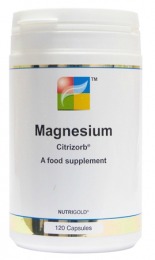Causes of High Blood Pressure
What, exactly, are the causes of high blood pressure, and what do the readings means?
(If you already know and you'd rather learn about the foods better suited for high blood pressure, go straight to the High Blood Pressure Diet page.)
Understanding Blood Pressure

Blood pressure is the force that is exerted by the blood on the surface of the inner walls of the blood vessels as the heart pumps the blood around the arteries.
The peak reading of pressure (or the highest figure) exerted by this contraction is the systolic pressure. Between beats the heart relaxes, and blood pressure drops. This lower reading is referred to as diastolic pressure.
Blood pressure readings are in millimitres of mercury (mm Hg). A normal blood pressure reading for adults is 120 (systolic)/80(diastolic).
But variations between 100-160 mmHg over 60-90 mmHg can be considered normal as blood pressure values depend on many factors such as age, obesity, inherited tendency on heart disease and important lifestyle factors such as diet, smoking, exercise, emotional stress, etc.
However, if the systolic reading repeatedly exceeds 160mmHg, or the diastolic pressure is consistently above 95mmHg, then the person may have high blood pressure or hypertension.
Signs and Symptoms of High Blood Pressure
Mild to moderate hypertension is generally without symptoms.
Severe
hypertension (160+/115+) may be associated with increased sleepiness,
confusion, headache, nausea and vomiting.
Complications of High Blood Pressure

If blood pressure is elevated, the heart must work harder to pump an adequate amount of blood to all the tissues of the body.
Hypertension increases stresses on the blood vessels walls and can cause serious damage to the walls of the
arteries, which, in turn, can be at the root of atherosclerosis.
Ultimately high blood pressure can lead to a wide range of vascular complications such as coronary heart disease, damage to the retina, kidney failure, cerebral haemorrhage, congestive heart failure, heart attacks and strokes.
Maternal high blood pressure during pregnancy (eclampsia) can also seriously compromise the normal functioning of the placenta, which can significantly affect fetal development.
Some Causes of High Blood Pressure

Primary hypertension is high blood pressure that is not due to another underlying disease. The precise cause is unknown, but a number of risk factors have been identified:
- Cigarette smoking
- Stress
- Lack of exercise
- Obesity and overweight
- Excessive use of stimulants such as coffee or tea
- Drug abuse
- High sodium intake can cause retention of water in the blood, which increases blood volume and thus blood pressure
- Use of oral contraceptive – but with the low-dose pills now available, this is not as much as a problem as it once was
- Family history of hypertension
When persistently elevated blood pressure arises as a result of another underlying health problem it’s
called secondary hypertension.
Some secondary causes of high blood pressure are:
- Hormonal abnormalities
- Inherited narrowing of the aorta
- Atherosclerosis – where the arteries have lost elasticity from a build-up of plaque on the inside walls of the vessels
- Poor kidney function, which results in the retention of excess sodium and fluid in the body
- Kidneys may also elevate blood pressure by secreting substances that cause blood vessels to constrict
Non-drug therapies to reduce high blood pressure include stopping smoking, weight reduction, salt restriction, increased aerobic exercise and emotional stress management.
Can Food Affect High Blood Pressure?

Much research shows that foods are laden with blood pressure boosters and reducers.
Eating your way out of high blood pressure is increasingly the number-one choice of virtually all experts, in lieu of or in addition to pharmaceutical drugs.
Once you’ve been able to establish the causes of high blood pressure with the help of your doctor, you may choose to try diet first.
The list of foods that may help lower blood pressure is growing longer and capturing the attention and imaginations of ever more mainstream physicians.
On the next page you’ll find a few and I'm sure you'll find many that you like and can include in your every day diet.
Articles in the High Blood Presuure Series:
- Causes of High Blood Pressure
- High Blood Pressure Diet
- Celery and High Blood Pressure
- Garlic and Blood pressure
- Onions and Blood Pressure
- Green Tea and Blood Pressure
- Fish to Lower Blood Pressure
- Banana for High Blood Pressure
- Fruits and Vegetables to Lower Blood Pressure
- Calcium and Blood Pressure
Search for information on this site:
Receive Discover the Power of Healing Foods! Free
Newsletter
Articles in This Series:
Celery and High Blood Pressure
Banana for High Blood Pressure




New! Comments
Have your say about what you just read! Leave me a comment in the box below.